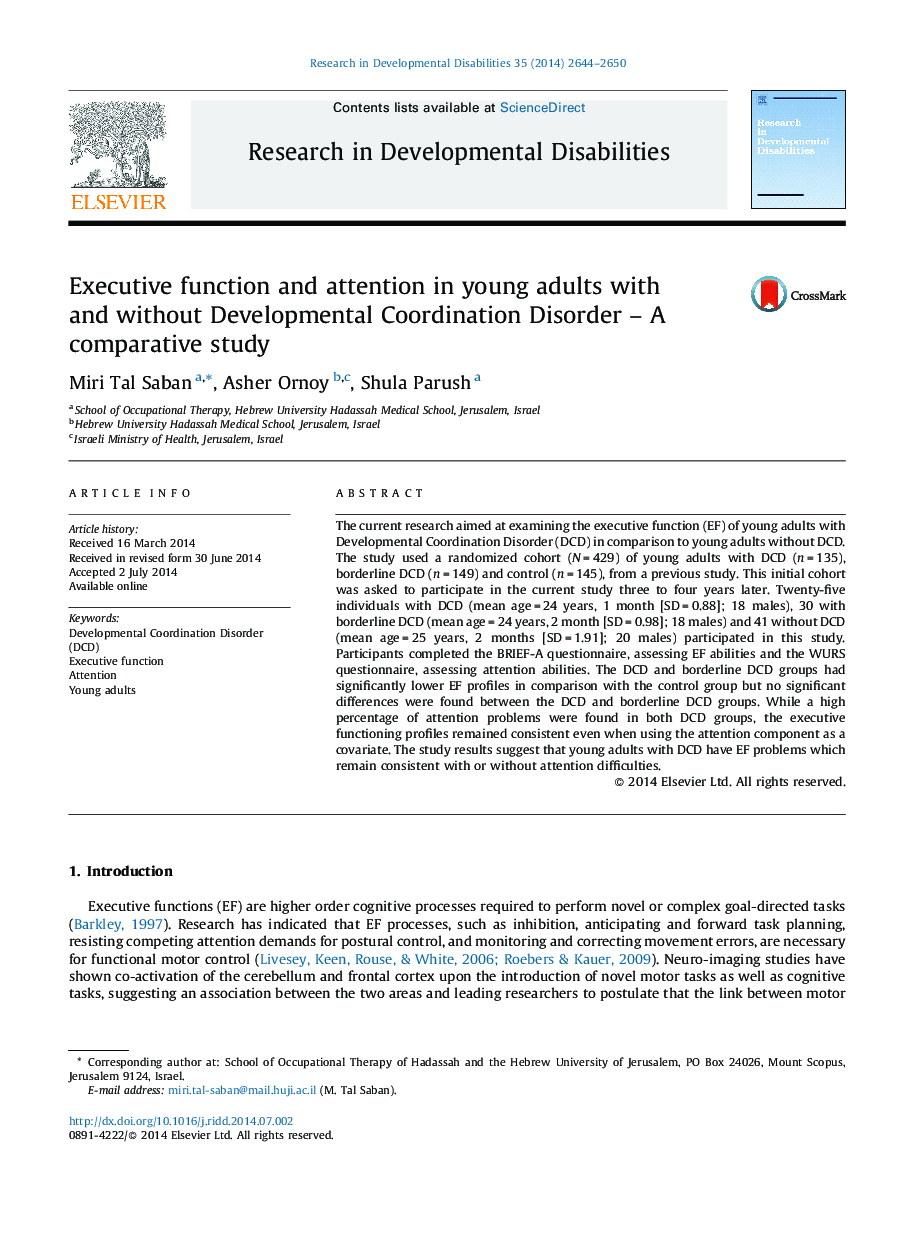| Article ID | Journal | Published Year | Pages | File Type |
|---|---|---|---|---|
| 10317293 | Research in Developmental Disabilities | 2014 | 7 Pages |
Abstract
The current research aimed at examining the executive function (EF) of young adults with Developmental Coordination Disorder (DCD) in comparison to young adults without DCD. The study used a randomized cohort (N = 429) of young adults with DCD (n = 135), borderline DCD (n = 149) and control (n = 145), from a previous study. This initial cohort was asked to participate in the current study three to four years later. Twenty-five individuals with DCD (mean age = 24 years, 1 month [SD = 0.88]; 18 males), 30 with borderline DCD (mean age = 24 years, 2 month [SD = 0.98]; 18 males) and 41 without DCD (mean age = 25 years, 2 months [SD = 1.91]; 20 males) participated in this study. Participants completed the BRIEF-A questionnaire, assessing EF abilities and the WURS questionnaire, assessing attention abilities. The DCD and borderline DCD groups had significantly lower EF profiles in comparison with the control group but no significant differences were found between the DCD and borderline DCD groups. While a high percentage of attention problems were found in both DCD groups, the executive functioning profiles remained consistent even when using the attention component as a covariate. The study results suggest that young adults with DCD have EF problems which remain consistent with or without attention difficulties.
Related Topics
Life Sciences
Neuroscience
Behavioral Neuroscience
Authors
Miri Tal Saban, Asher Ornoy, Shula Parush,
